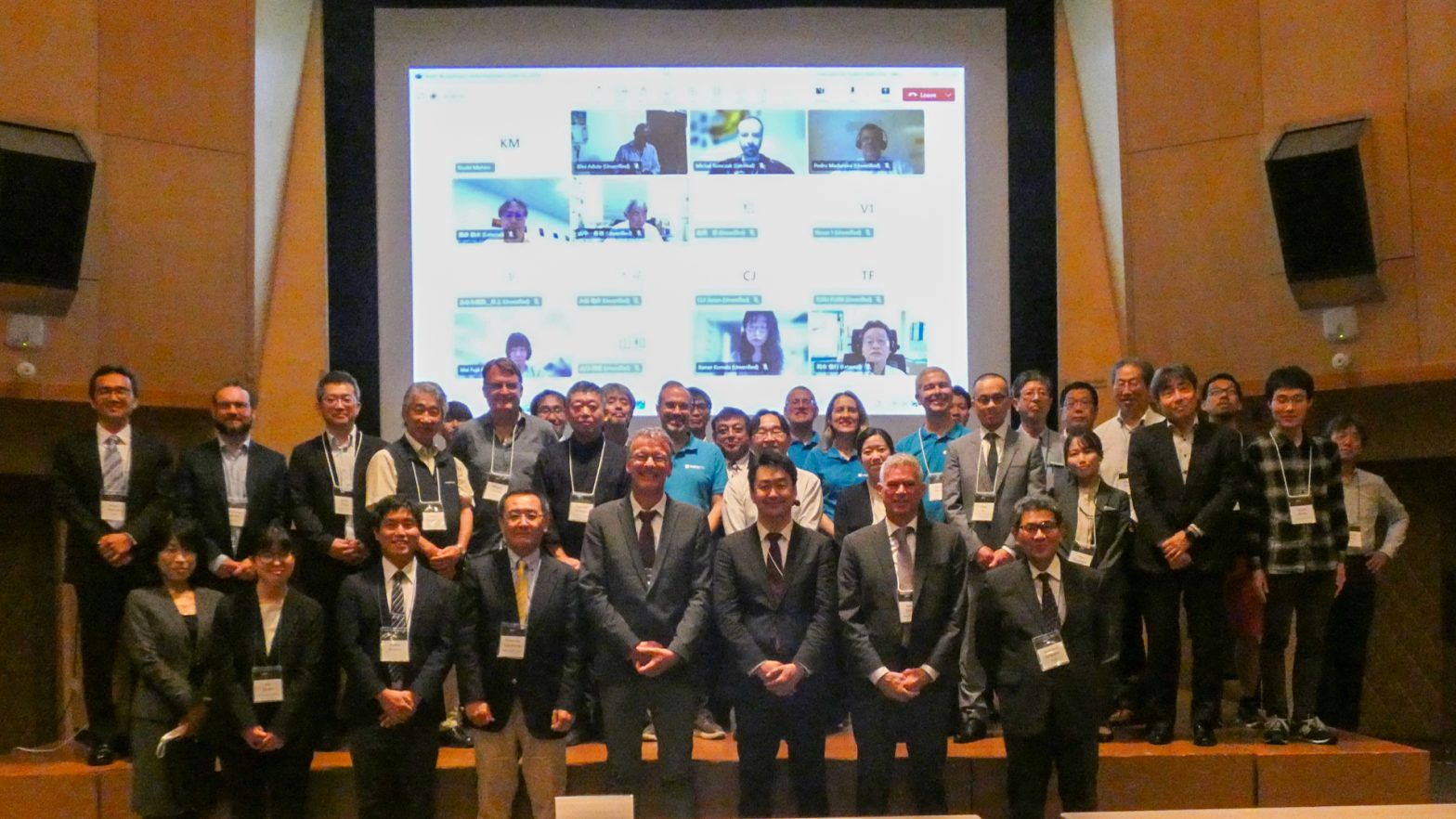Kobe, Japan – 12 June 2025 – The International Seabed Authority (ISA), in collaboration with the Kobe Ocean-Bottom Exploration Center (KOBEC) at Kobe University, successfully concluded the Second international expert scoping workshop, “Charting future horizons: Harnessing advanced technologies for the protection and sustainable use of the international seabed area – Focus on monitoring.”
Held over three days from 10 to 12 June 2025 at Kobe University’s Centennial Hall (Rokkodai 2nd Campus), the workshop convened over 130 participants representing 32 countries, including 18 developing States from Africa, Asia, Latin America and the Caribbean, and small island developing States. The event, in hybrid format, brought together internationally recognized experts to exchange knowledge and foster collaboration on emerging technologies for environmental and technical monitoring of the international seabed area (the Area), a global common governed collectively under international law beyond the limits of national jurisdiction.
The workshop focused on environmental monitoring based on the existing technologies, following outputs from the first expert workshop in Porto, Portugal, on five core technological pillars: ocean observation and communication, monitoring, autonomy–automation–robotics, machine learning and artificial intelligence, and mining–energy–processing. Discussions in Kobe focused on how existing and developing technologies can be applied to data collection, reporting, advanced machine learning and modelling and how innovation can support data-based ocean and seabed activities, enhance environmental baseline studies and monitor future responsible resource exploitation.
Key outcomes included
- assessment of technology readiness for practical deep-sea applications, including autonomous underwater vehicles, robotics, and advanced sensor systems
- identification of effective strategies for real-time data acquisition, standardization, communication, interpretation and management
- exploration of machine learning and AI tools to enable predictive modelling and environmental interpretation in support of ISA’s regulatory mandate.
These discussions directly support ISA’s strategic objectives under its legal framework, particularly in relation to the development of regional environmental management plans and the establishment of environmental thresholds. Outputs from the workshop are expected to inform future ISA guidelines, monitoring schemes and protocols, capacity-building efforts, and the design and undertaking of environmentally responsible test mining operations.
In her opening remarks, Ms. Leticia Carvalho, Secretary-General of ISA, emphasized the importance of this workshop as a “highly anticipated and tangible outcome” of the ISA-KOBEC partnership, formalized in 2024. “Technological innovation is key to building transparent, low-impact and cost-effective monitoring systems in the Area, central to ISA’s regulatory mission. I am confident that your discussions will foster synergies, strengthen strategic partnerships, and drive innovation that supports sustainable seabed governance,” she said.
Representing the Government of Japan, Mr. Yuzo Yamaguchi, Director of Mineral Resources, Division of the Ministry of Economy, Trade and Industry of Japan, welcomed participants and reaffirmed Japan’s strong commitment to the sustainable use of deep-sea mineral resources. “As global attention on critical minerals grows, it is vital to place environmental conservation at the core of development efforts. This workshop plays an important role in advancing international standards and strengthening cooperation toward carbon neutrality and resource security,” he remarked.
Prof. Masato Fujisawa, President of Kobe University, highlighted the honour of hosting the ISA event and underlined the University’s dedication to interdisciplinary and marine research grounded in its founding principle of harmonizing theory and practice. He noted that, “The partnership between ISA and Kobe University reflects a shared long-term vision for scientific and technological innovation in support of the sustainable use of the Area, aligned with the sustainable development goals.”
Dr. Katsuhiko Suzuki, Director of the Japan Agency for Marine-Earth Science and Technology, spoke of its mission to advance the understanding of Earth and ocean systems and highlighted Japan’s leadership in submarine mineral exploration. He expressed optimism for continued collaboration aligned with ISA’s environmental stewardship objectives.
This workshop marked a significant milestone in the ongoing collaboration between ISA, Japanese institutions, and the international scientific community to promote responsible innovation and global cooperation in seabed monitoring.
About the International Seabed Authority
The International Seabed Authority is an autonomous intergovernmental organization mandated by the United Nations Convention on the Law of the Sea to manage the mineral resources of the seabed beyond national jurisdiction for the shared benefit of humankind. The International Seabed Authority is committed to ensuring that all economic activities in the deep seabed, including mining, are regulated and responsibly managed using the best available scientific evidence for the benefit of all humankind.
For media inquiries, please contact:
ISA Communications Unit, news@isa.org.jm


